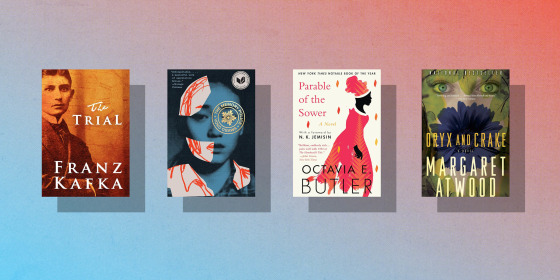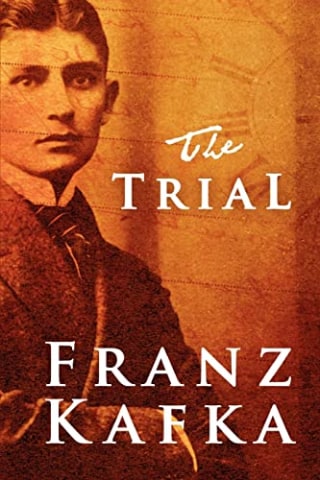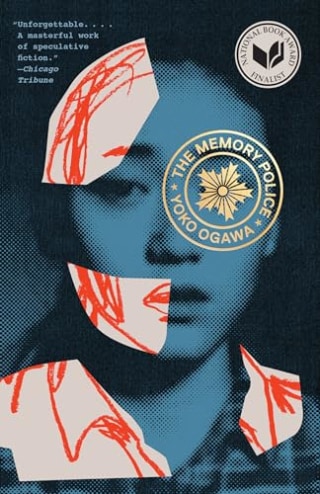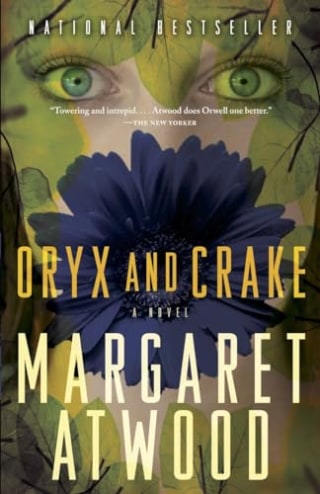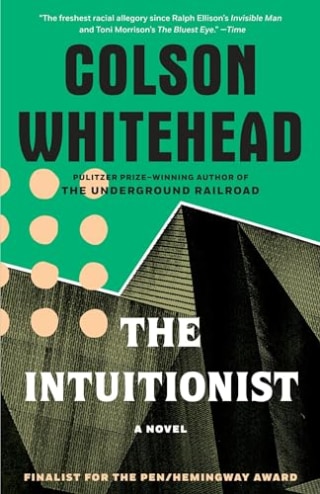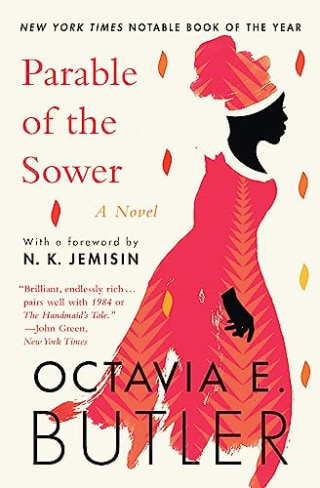Jenna Bush Hager entered her dystopian era with her March Read With Jenna pick, “The Dream Hotel” by Laila Lalami.
The novel follows Sara, a woman who finds herself pulled aside by airport security not for smuggling a few extra toiletries in her carry-on, but for a dream that they believe indicates she may one day commit a crime.
In “The Dream Hotel” universe, officials use dream-monitoring data to predict whether someone could pose a threat to society. Sara's dreams are enough of a threat to land her at a retention center with other “dreamers,” all of whom are trying to prove their innocence.
Lalami’s latest novel is not only a commentary on today’s heightened surveillance, but also the role that technology plays in an increasingly distrusting world.
While March is rapidly coming to a close, Lalami has five book recommendations for lovers of “The Dream Hotel” and beyond. For all her thought-provoking recommendations, keep reading.
"The Trial" by Franz Kafka
Franz Kafka's famous novel “The Trial” is the unsettling tale of a respectable bank officer, Josef K., who is suddenly arrested for a charge that he must defend himself against with no information.
“We follow K on a harrowing journey through a legal bureaucracy that surveils and punishes him without ever telling him why he is being imprisoned,” Lalami told TODAY.com.
“This book begins with one of my favorite first lines: ’Someone must have been telling lies about Joseph K., for without having done anything wrong he was arrested one fine morning.’”
"The Memory Police" by Yoko Ogawa
Taking place on an unnamed island, “The Memory Police” follows the eerie disappearance of various everyday objects — and how people have been made to forget them altogether.
The novel details “a writer who discovers that someone close to her actually remembers the forbidden words,” Lalami explained.
“Ogawa explores life under authoritarian systems, the ethical choices that people have to make, and the vital role that language and storytelling play in our survival.”
"Oryx and Crake" by Margaret Atwood
“Oryx and Crake” is an unconventional, layered environmental dystopia about a man navigating love, loss and survival in a world overtaken by powerful corporations.
“A man who believes he is the last human alive tries to carry on, in a world that was both decimated and repopulated by genetic engineering,” Lalami said. “Atwood is so adept at world building, and this one is especially fascinating.”
"The Intuitionist" by Colson Whitehead
“The Intuitionist” is a dystopia by award-winning author Colson Whitehead. In the Department of Elevator Inspectors, two factions — the Empiricists and the Intuitionists — are warring for dominance.
Lila Mae, an Intuitionist and the city’s first black female inspector, comes under fire after a new building crashes on her watch, making the feud between the two opposing groups even more intense.
Consequently, the elevator’s crash allows Lila Mae to “discover the truth about the school of thought she has devoted herself to for years,” Lalami said. “Years after reading this one, I’m still amazed that a novel about elevator inspectors could be so riveting, so fun, and ultimately so profound.”
"Parable of the Sower" by Octavia Butler
“Parable of the Sower” follows the harrowing story of Lauren Olamina, a young girl who is faced with extreme grief after a fire kills her immediate family and destroys her home. Completely alone, Lauren is forced to approach the dangers of the world head-on.
The novel struck Lalami as eerily current. “The apocalyptic wildfires that raged in Los Angeles this past January have made the fictions of Octavia Butler seem even more prescient,” she said. “But ‘Parable of the Sower’ offers more than just a future of climate disaster; it also shows us ways that people can work together to survive.”
